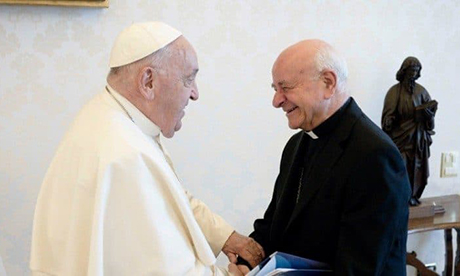The Vatican has signaled a nuanced shift in its stance on providing food and hydration to patients in a vegetative state.
The stance is outlined in a new document published by the Pontifical Academy for Life (PAV).
The text, titled “Small Lexicon on End of Life”, indicates a slight departure from the Church’s previous position.
However, it still reaffirms its opposition to euthanasia and assisted suicide.
This new publication reflects the Vatican’s evolving perspective on “aggressive treatment” in end-of-life care, particularly concerning the moral obligation to provide artificial nutrition and hydration.
The text acknowledges the complexity of determining when food and hydration, typically administered through medical technology, may no longer be considered obligatory.
In the 88-page document, the PAV reiterates the need to avoid “disproportionate interventions”.
It highlights the importance of considering the overall well-being of the patient rather than focusing solely on sustaining biological functions.
According to an introduction by Italian Archbishop Vincenzo Paglia (pictured), president of the PAV, the volume has the aim of “reducing at least that component of disagreement that depends on an imprecise use of the notions implied in speech”.
Moral duty to provide food and water
The document refers to past Vatican teachings including the 2020 letter Samaritanus Bonus and the 2024 declaration Dignitas Infinita. These teachings highlight the importance of avoiding aggressive treatments that may not truly help the patient.
The volume noted that the food and hydration prepared for vegetative patients are prepared in a laboratory and administered through technology, and thus do not amount to “simple care procedures.”
The new lexicon also quotes Pope Francis, who in 2017 cautioned against insisting on treatments that merely sustain life without improving the overall health of the patient.
The PAV document clarifies that this nuanced position does not contradict the DDF’s 2007 guidelines which emphasised the moral duty to provide food and water, even artificially, to patients in a vegetative state.
By allowing the space to be kept open for research on legislative mediation on the topic, Paglia in his introduction said “in this way, believers assume their responsibility to explain to everyone the universal (ethical) sense disclosed in the Christian faith”.
Sources
Additional reading
News category: World.




